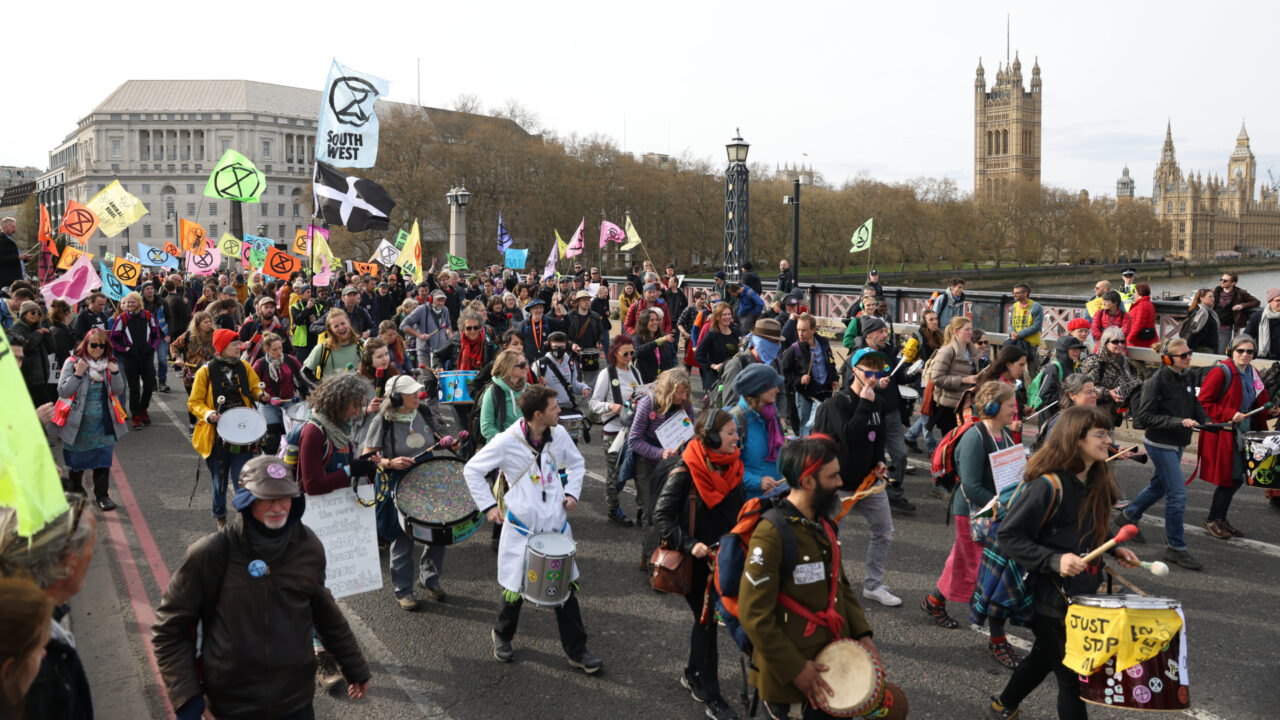Protests by Extinction Rebellion (XR) and its offshoot Just Stop Oil (JSO) are likely to cause minimal disruption to businesses in the coming weeks, in our assessment.
This assessment was issued to clients of Dragonfly’s Security Intelligence & Analysis Service (SIAS) on 13 September 2022.
Forcing the government to address climate change appears to be the main goal of the groups’ upcoming campaigns. Most protest actions are likely to centre on the government and ministries, particularly in Whitehall, although there is still a reasonable possibility of small direct actions against businesses. The groups’ targeting is fairly well established, and, based on precedent, includes oil terminals, airports, petrol stations, and banking and media offices.
September rebellion delayed
XR’s campaign is likely to begin after 19 September. It was due to start from 9 September, but was delayed due to the death of Queen Elizabeth II. The campaign appears to be divided into a publicity phase to gain traction, followed by a phase of protests against government institutions in central London. JSO’s plan, similar to that of XR, also mentions Westminster and appears to be aiming to put pressure on the government. This clear communication of the government as the target suggests that operational impacts on most businesses will probably not go beyond traffic disruption in the Westminster area.
From 14 October, XR plans to focus on Westminster and ‘join forces with other groups’. In our analysis this is likely to involve a protest of at least a few thousand people near or outside government buildings, perhaps in collaboration with JSO. XR’s last major action in the area in 2019 involved protests of several thousand people throughout the Westminster area; police arrested over 100 people. And earlier this year, activists blocked four main bridges in London, including Westminster Bridge. There is a reasonable chance they will attempt to do the same this time.
JSO has published a similar plan named ‘Occupy Westminster’ for around the same period. On 1 October, activists plan to march ‘from different points across London’ to congregate in Westminster and then ‘block’ the area until 10 November. They have not publicly specified what this will entail, but a source we have recently spoken with, who has links to the group, said supporters from across the country plan to travel to London and block the roads outside parliament, specifying that they were prepared to be arrested. This is likely to include Parliament Square, Great George Street, and Westminster Bridge.
Nonviolent direct actions and disruptive tactics
The groups’ current grievances and priorities appear to stem from perceived government inaction over and above energy companies’ amid price rises. That is at least based on our monitoring of their narrative in both public and private channels. Their focus on the government means it is unlikely that the risk to business offices or assets will be significantly elevated during this period. Still, there is a reasonable probability that activists will carry out some direct actions. These have tended to happen with little or no prior warning.
Violence by XR or JSO activists during protests is extremely rare. A policy of nonviolence has always underpinned the action of XR and its offshoots; we maintain, as we have done in analysis of previous years’ events, that material damage will be limited to window-breaking, paint throwing and similar minor vandalism. Activists physically obstructing or glueing their hands to roads, business property and other infrastructure has been a common tactic in the past, and has caused the type of disruption that the group aims to achieve.
Image: Extinction Rebellion protesters block Lambeth Bridge as part of their Spring 2022 UK Action on 10 April 2022 in London, England; photo by Hollie Adams/Getty Images







